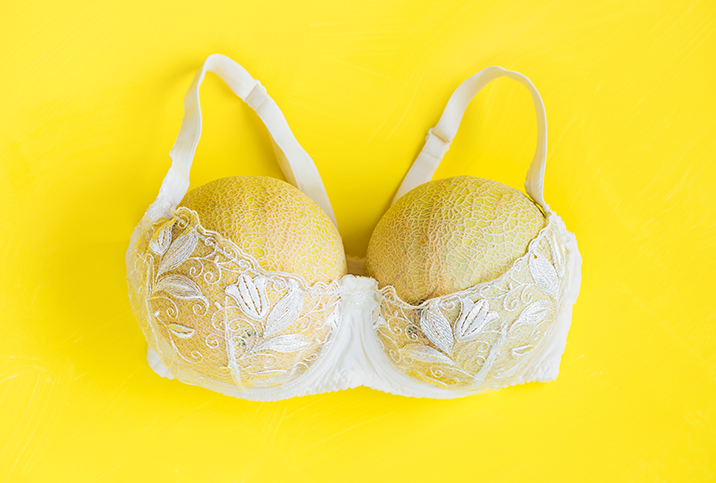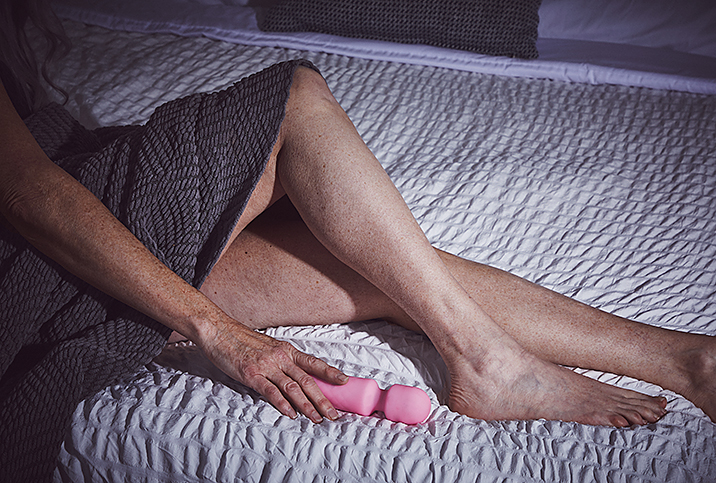Can Prunes Keep Your Bones Healthy After Menopause?

Don't let their oddly dehydrated appearance fool you; prunes can help maintain your body's health. Prunes may offer potential health benefits. For some people going through menopause, they may help maintain bone health.
How can prunes help your body?
Including prunes in your daily diet could help benefit your heart health by potentially helping to slow atherosclerosis, or atherosclerotic cardiovascular disease, a buildup of substances on and in the heart's artery walls. Studies suggest prunes aid in reducing the development of atherosclerosis lesions. One study suggested a daily dose of prunes could help reduce blood pressure.
Prunes may help boost other parts of the body, too. Prunes can help you feel fuller for longer. It's common knowledge that high-fiber prunes help promote gastrointestinal function, too.
But one specific group of people could benefit from adding prunes to their diet. Prunes may help preserve bone strength and prevent bone loss in postmenopausal women, according to a 2022 Penn State University study. Prunes may mitigate the inflammatory response, one of the risk factors for bone loss.
Menopause and bone density
Menopause, the 12-month period when women experience a natural hormone decline, can involve several unpleasant side effects, including hot flashes, weight gain, vaginal dryness and sometimes loss of libido.
But it's also a time that can affect bone loss and, as a result, lead to osteoporosis and fractures.
"Menopause significantly speeds up bone loss and increases the risk of osteoporosis, [or] porous bones," said Rixt A. Luikenaar, M.D., a board-certified OB-GYN at Rebirth OB-GYN in Salt Lake City.
The end of your menstrual cycle marks a pivotal point that can lead to changes in your physical health. Accelerated bone loss after menopause can weaken your bones because they can't rebuild at the same rate.
"Research indicates that up to 20 percent of bone loss can happen after menopause, and about 1 in 10 women over the age of 60 are affected by osteoporosis worldwide," Luikenaar said. "One in 2 women will have osteoporosis, and most suffer fractures during their lifetime."
Men can develop osteoporosis, too, but women are at an increased risk because they tend to have smaller, thinner bones, according to Bone Health & Osteoporosis Foundation. A woman's risk of breaking a hip is equal to her combined risk of breast, uterine and ovarian cancer.
Menopausal risks to bone health
"Bone loss, which rapidly increases after menopause, can have many consequences. Hip fractures, in particular, cause the most disability and mortality than any other fracture," said Jacqueline Sanchez, M.D., an OB-GYN and certified menopause provider based in Miami.
Sanchez explained that hip fractures might require long-term care, often cause a loss of mobility and are associated with a five- to eightfold increase in mortality in the first three months after the fracture.
Another potential result of bone loss are vertebral fractures, which can cause chronic pain and a loss of height, and can affect how you walk, breathe and perform your daily activities, Sanchez said.
Different factors can increase your risk of fracture, she added.
The risk factors for bone loss after menopause include:
- Smoking
- Drinking alcohol in excess
- Taking certain medications, such as steroids
- Chronic inflammatory illnesses, such as rheumatoid arthritis
- Diseases of malabsorption, such as celiac disease
- Various endocrine conditions
- Lack of vitamin D and calcium
"Those with a high risk of falls and a parental history of a hip fracture are also at an increased personal risk of fracture," Sanchez said.
Why are you experiencing bone loss after menopause?
If you have osteoporosis, your bones are more porous. They may be weaker and more frail. This change is mainly caused by estrogen deficiency after menopause, when your body's production of this hormone decreases.
"Estrogen levels drop after menopause," Luikenaar explained. "Estrogen helps prevent bones from getting weaker by slowing the natural breakdown of bone. A decrease in estrogen accelerates the breakdown of bone after menopause."
How many prunes should you eat?
Penn State researchers suggested a link between osteoporosis and chronic inflammation. After looking at biomarkers, they identified inflammation as an important factor affecting bone health and the target for nutritional therapies.
Through two clinical trials, researchers evaluated the effects of dietary intervention with prunes in postmenopausal women. The groups were divided into individuals who ate no prunes and those who ate between 50 grams (five to six prunes) and 100 grams (10 to 12 prunes) per day for 12 months.
The academics checked the bone strength, bone geometry and bone mineral density of the postmenopausal women in these groups. In the first trial, they observed bone preservation in the hip following the consumption of five to six prunes per day. Testing began six months into the yearlong study.
"In this second part of the randomized controlled trial, 3-D imaging of bone provided some additional info about the response of bone to consuming prunes daily," said the lead author, Mary Jane De Souza, Ph.D., a professor and the director of the Women's Health and Exercise Lab at Penn State, in a news release.
The study suggested that prune consumption preserves volumetric bone mineral density and the estimated strength strain index. The researchers believe prunes may help prevent bone loss, especially in the hip and tibia.
Change your lifestyle habits
The increased likelihood of a fracture threatens your quality of life. But it's not inevitable. You can make changes in your lifestyle that can help reduce the risk of bone loss.
"A healthier lifestyle will absolutely decrease your risk of fractures," Sanchez said. "In general, a healthy lifestyle with proper nutrition, regular physical activity and avoiding harmful habits, like smoking and excessive alcohol, is recommended for all women to reduce risk of osteoporosis."
Luikenaar listed the reasons you should try certain healthy activities:
- Sunshine can help maintain vitamin D levels.
- Preventing obesity can help keep bones strong.
- Weight-bearing exercises can help build strong bones.
- Avoid smoking and limit alcohol consumption as these actions may decrease bone health.
You can get calcium and vitamin D from a large assortment of foods, including fortified dairy products, fatty fish such as mackerel and tuna, and prunes.
Maintaining a healthy weight, engaging in regular physical activity and including certain foods in your diet could help reduce your risk of osteoporosis. Speak to your doctor to learn how to keep menopausal bone loss at bay.
The bottom line
Menopause can cause a host of bodily changes, but bone loss doesn't have to be extreme. Prunes may be one way to help maintain your body. Consult your doctor and see what other kinds of lifestyle changes you can make to help minimize your risk of bone loss.
Do you need to find a new doctor? Try Giddy Telehealth. The easy-to-use online portal offers access to hundreds of healthcare professionals for the full range of medical care.


















